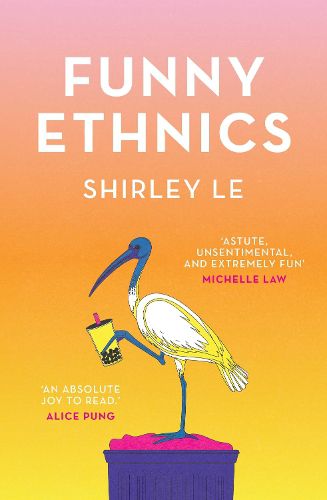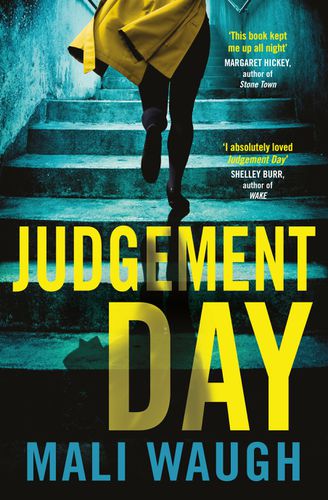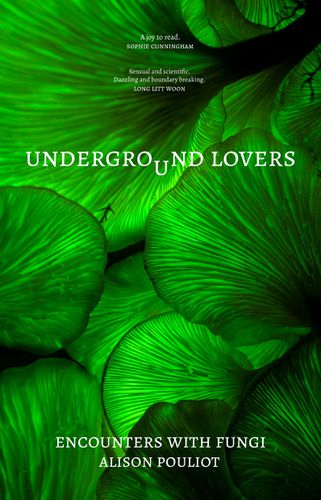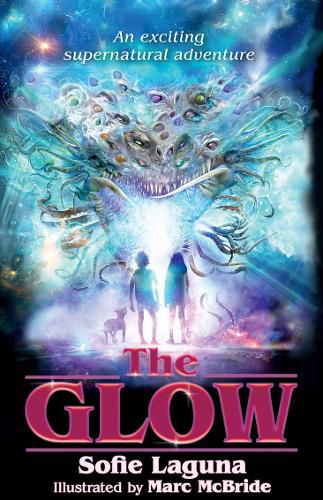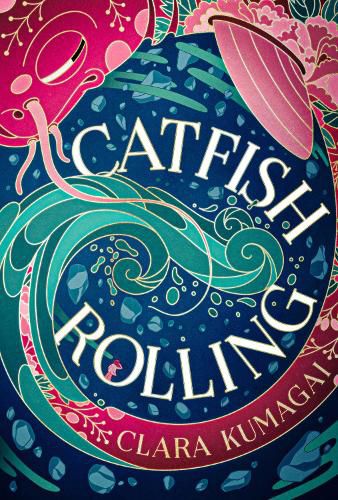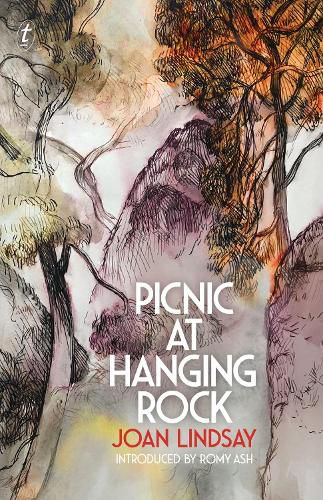Explore our books of the month for March; each of the below titles has been read and recommended by our booksellers before being selected as our book of the month for its category. you can read reviews in their entirety by viewing the individual book pages on our website.
FICTION BOOK OF THE MONTH
Funny Ethnics by Shirley Le
Reviewed by Jackie Tang, a former editor of Readings Monthly
' Funny Ethnics feels like a jolt of something electric and new.'
Western Sydney writer Shirley Le’s debut novel opens on a scene that feels familiar: a young 20-something sits in nervous anticipation, about to tell her parents she’s dropping her Law degree to pursue creative writing. You’d be forgiven for thinking you know what comes next: a book about a studious overachiever, perhaps, who discovers the power of Art. You’d be wrong.
Funny Ethnics eschews politeness and feel-good narrative expectations. With a bold, satirical wit, Le focuses her lens on a world rarely seen in Australian literature: one of suburban carpark bust-ups and hallucinatory fortune- tellers, where bubble tea is the drink of choice and Free Shit Day is a key calendar event.
In the middle of it all is Sylvia Nguyen, the only child of her Ba and Me. Growing up in the Western Sydney suburb of Yagoona, surrounded by other Vietnamese-Australian families whose children are being primed to ‘single-handedly airlift the next generations ... into upper-middle-class Australia’, Sylvia is an outlier. She’s not particularly academically motivated and isn’t quite sure where she fits in the world. As she grows up, we witness her doubts and failings as well as her tentative steps towards a self-defined success.
CRIME BOOK OF THE MONTH
Judgement Day by Mali Waugh
Reviewed by Julia Jackson, assistant manager at Readings Carlton
'I really enjoyed this book: it’s a welcome distraction from the outback noir releases of late.'
Like last April’s Daughters of Eve by Nina D Campbell, Mali’s Waugh’s debut Judgement Day contains a strong female lead as well as strong themes of family violence. Detective Jillian Basset is the first senior detective I’ve encountered struggling with both postpartum and an alpha male at work (who is threatening to take over her job). One odd thing stands out in her new case: why kill Judge Kaye Bailey, the fiercely determined yet empathetic family court judge, just hours after her appointment to the position of chief justice, and on the eve of a major judgement? More to the point for readers: whodunnit? The story unfolds slowly, but at a satisfying pace, leaving you just enough pages to figure out the murderer for yourself.
I really enjoyed this book: it’s a welcome distraction from the outback noir releases of late. Mali Waugh is a newcomer to the crime genre (or as my dear colleague prefers to call them, ‘burglar books’ – he also refers to cookbooks as ‘books about dinner’) but you wouldn’t know it. Her writing is accomplished and refreshingly urban. Being immersed in the hustle and bustle of Melbourne’s Hoddle Grid, and among bizarre, self-absorbed personalities was interesting. We don’t often see legal crime novels from Australian writers. Normally the sub-genre is dominated by John Grisham, so it’s nice have an antipodean perspective and character study as part of the canon.
NONFICTION BOOK OF THE MONTH
Underground Lovers by Alison Pouliot
Reviewed by Elke Power, editor of Readings Monthly
'By the end of Underground Lovers, you’ll be convinced of the importance of even the smelliest, most parasitic forms of fungi.'
Some people chase the sun, or the snow, around the world each year; Alison Pouliot follows autumn. Splitting most of her time between Victoria and Switzerland, she roams far and often in pursuit of fungi and its close collaborators. Climbing glaciers, exploring grasslands and deserts, and closely observing forests of every kind, she treads lightly, carries a camera, and meets fellow fungi enthusiasts everywhere – along with the occasional champagne-sharing goth.
Pouliot’s enthusiasm for fungi is remarkable. More surprising yet is how contagious it is, and how little thought many of us give to this underappreciated lifeform. A natural historian, ecologist, photographer and writer, Pouliot is a born storyteller, able to conjure fungi and friends of fungi alike in memorable colour. Having just described an aptly named stinkhorn, Pouliot moves on to the next forest find which is ‘conjuring images of an illicit invertebrate banquet furnished with ouzo and liquorice.’
MIDDLE FICTION BOOK OF THE MONTH
The Glow by Sophie Laguna and Marc McBride (illus.)
Reviewed by Jennifer Fraioli, manager at Readings Doncaster
'Perfect for all kids 8+, but especially for those who are just a little bit different.'
Megan feels more at home in the worlds of the fictional monsters she draws than she does in the world around her. While her older sisters are always outside playing sports, Megan would rather be curled up with her notebook, creating and drawing beasts like the Watrox (part monster, part machine, with scales made of unbreakable glass) or the Finrills (dolphin-like creatures with wings). Megan felt alone until Li and her mum moved in across the street, but the two soon became best friends, with Megan drawing fantastic creatures and Li writing endless stories about them. Together, they’ve created their own exciting world.
One day the girls discover that everyone around them is hypnotised by a strange blue glow coming from their phones and computers – everyone except Li and Megan. The girls set out with Callie, Megan’s dog, to see if they can find help, but everyone they come across is in the same state, just staring blankly at a blue screen. Even though they’re frightened and worried, they realise they’re the only ones who can save the day, and the girls must use all their creativity to fight the evil that’s trying to take over their village.
YOUNG ADULT BOOK OF THE MONTH
Catfish Rolling by Clara Kumagai
Reviewed by Aurelia Orr, Readings Kids
'Catfish Rolling is an ode to the unexpected tremors that unbalance us in life, and to the people who steady us again.'
Catfish Rolling is a whimsical debut about memory, grief, and finding your place in the world when time seems to be slipping through your fingers.
Beneath the islands of Japan lies a catfish of legendary size, and when it rolls, the land rises and falls with it. Sora was holidaying in Japan with her family when the catfish rolled and caused an earthquake so powerful it fractured time itself. Now there are pockets of time – or zones – where time moves either faster or slower than normal, and eerie, strangely shaped shadows linger.
Since her mother and grandfather disappeared in the earthquake, presumed dead, Sora and her father have spent years exploring the zones, trying to understand what happened. So, when her father goes missing, Sora will stop at nothing to get him back, even if that means venturing deep into the liminal spaces between time and confronting the catfish itself.
YOUNG ADULT CLASSIC OF THE MONTH
Picnic at Hanging Rock by Joan Lindsay
Reviewed by Kealy Siryj, Readings Carlton and Kids
'Readers who enjoy contemporary Australian gothic crime must revisit this modern classic.'
Joan Lindsay’s Picnic at Hanging Rock birthed a mythology so entrenched in the Australian culture that it is now inextricable from the landmark itself. First published in 1967, the story is set on Valentine’s Day, 1900, when three schoolgirls and their teacher from nearby Appleyard College set out to explore the rock and are never seen again. Their disappearance, shrouded in mystery, rattles the college’s otherwise careful community. Their manufactured sense of order is challenged by something unexplainable – this unease anchors Lindsay’s suspenseful narrative.
Picnic at Hanging Rock fed the deepest held fears about the unknown of the Australian bush. It is a relic of its moment in time where the colonial institution stands in stark contrast to, and is perhaps rejected by, the landscape it is forcing itself upon. Picnic at Hanging Rock leaves its reader with more questions than it answers. Its horror is built through evocative and atmospheric tension, building towards a release that is not guaranteed. Readers who enjoy contemporary Australian gothic crime must revisit this modern classic. Lindsay’s prose has a sensual quality – fit for reading on bleached, dry grass, on the hottest day of summer. Recommended for readers aged 14+.
CLASSIC ALBUM OF THE MONTH
Luigi Boccherini: The Six Symphonies, Op. 35 by Marc Destrube
Reviewed by Kate Rockstrom, friend of Readings
'To say these symphonies are pure delight is underselling them.'
I love a composer with a big idea. In 1775 the Spanish prince Don Luis de Borbon found himself exiled to a back corner of Spain after a failed attempt to become King. During his time in Madrid, he was a patron of an up-and-coming young composer from Italy, Luigi Boccherini. But as his exile dragged on, he commissioned Boccherini to write him something to cheer him up and these delightful six symphonies were premiered in 1782. Unfortunately (in Boccherini’s mind) there was only a string quartet on hand to play these three movements. Nevertheless, he dreamed big and left notes to inform future performances by a full orchestra.
Two hundred and forty years later, renowned early music specialist and viola player Emilio Moreno gets his hands on the original score and recreates it as Boccherini had envisioned. Moreno is a member of the Orchestra of the Eighteenth Century and with conductor Marc Destrubé they have brought a new sunbeam into the world.


